new to the gluten free journey?
new to the gluten free journey?
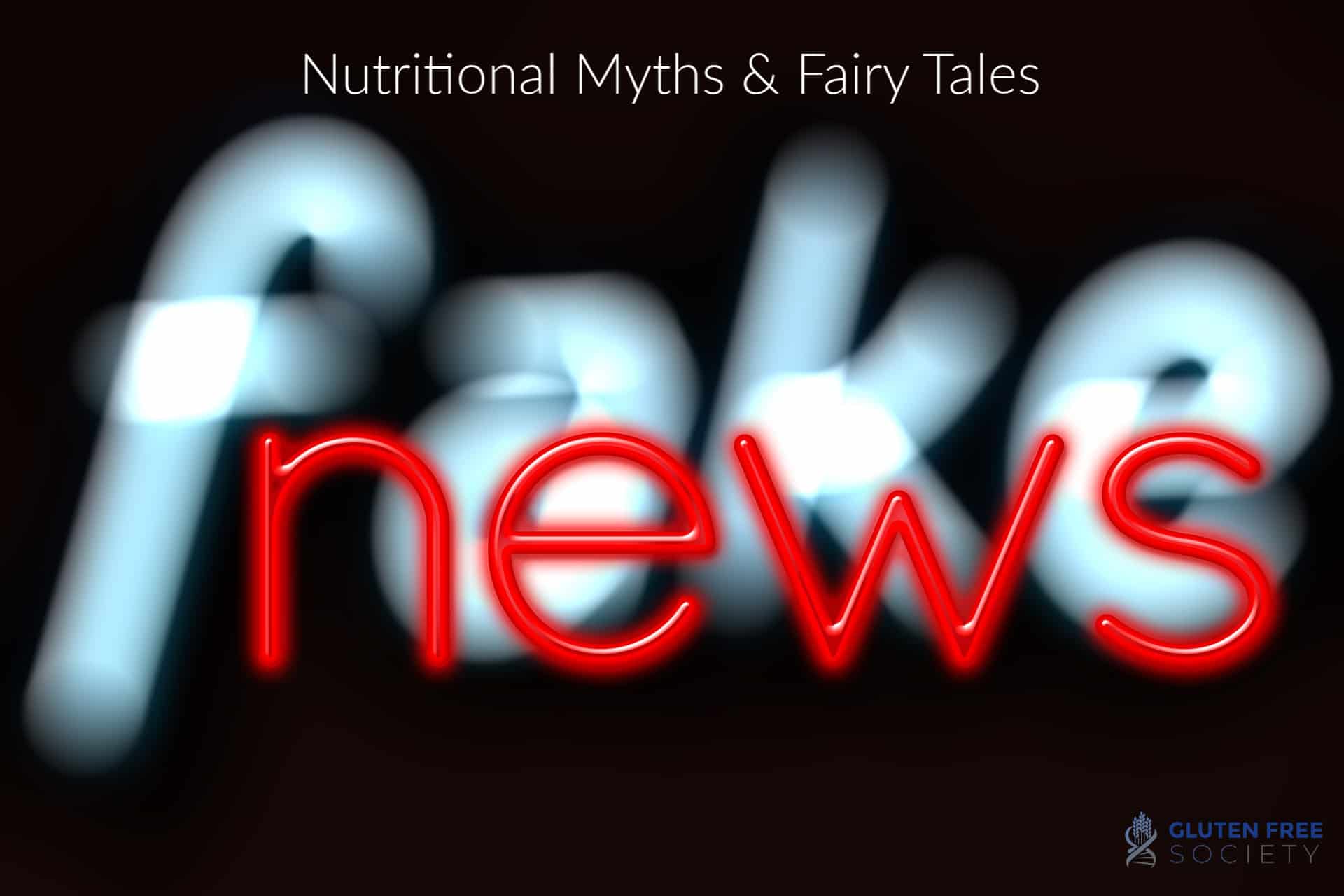
 We’ve all been there – we start feeling ill and turn immediately to the internet for answers. While this may prove helpful at times, sources like the internet, television, and sometimes even doctors can provide false information that we accept as truth. Below are seven of these nutritional myths that are commonly believed and if applied can prove harmful over time.
We’ve all been there – we start feeling ill and turn immediately to the internet for answers. While this may prove helpful at times, sources like the internet, television, and sometimes even doctors can provide false information that we accept as truth. Below are seven of these nutritional myths that are commonly believed and if applied can prove harmful over time.
Contents
Toggle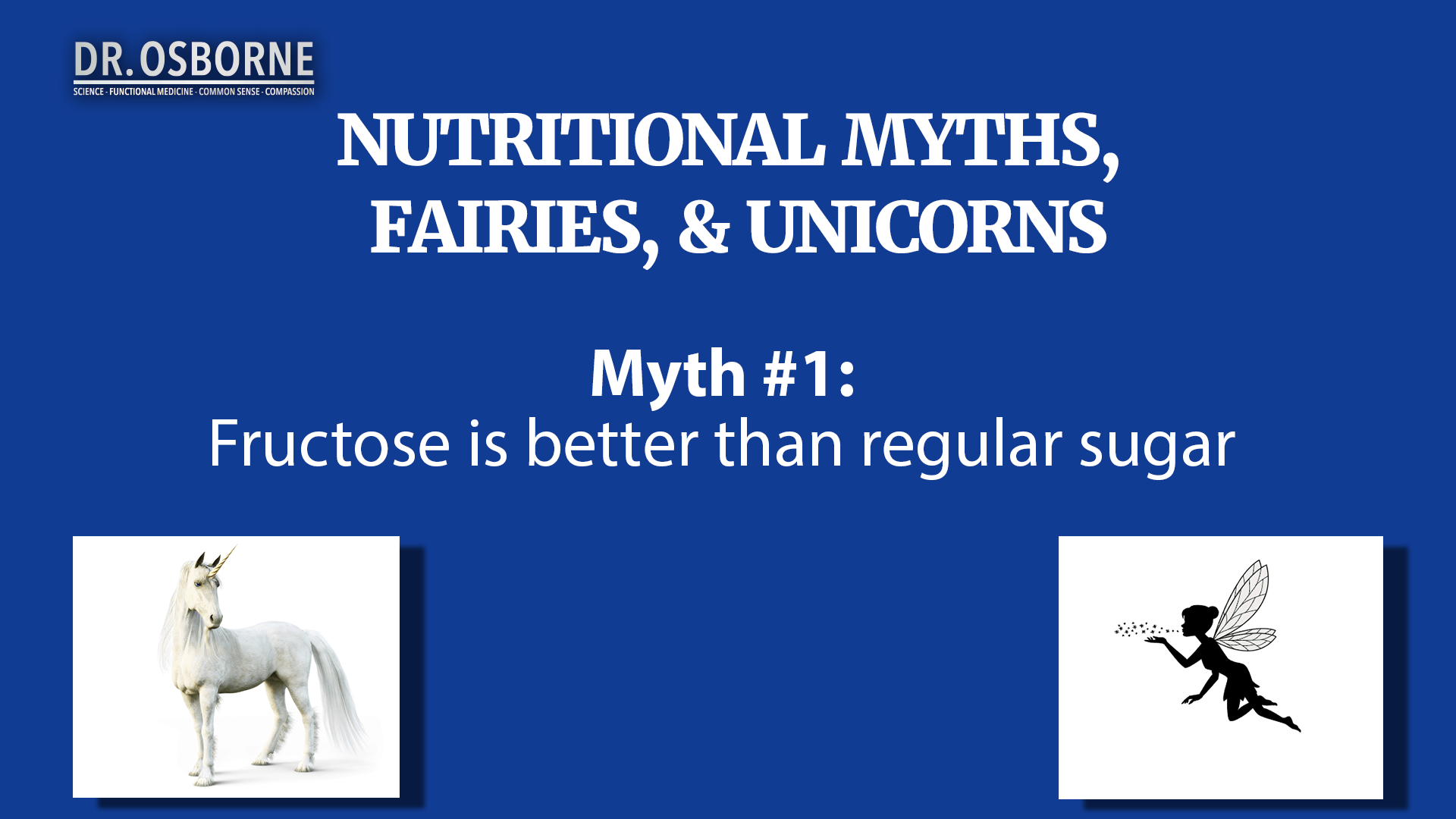 While it is known that sugar is not good for the body, some have succumbed to nutritional myths that fructose or high fructose corn syrup is okay to eat. Fructose is, however, a highly refined, processed food that is extrapolated primarily out of corn. Many companies are starting to call this ingredient a “natural sweetener” which further propels this myth and portrays it as an easy to digest item.
The reality is, that unlike regular sugar, it must be metabolized and then broken down in the liver. Unfortunately, it is starting to appear everywhere. Looking at labels closely, you will see it in cereal, bread, candy, and even gum. Eventually, overconsumption leads to an elevation in triglycerides which can, in turn, cause metabolic syndrome.
While it is known that sugar is not good for the body, some have succumbed to nutritional myths that fructose or high fructose corn syrup is okay to eat. Fructose is, however, a highly refined, processed food that is extrapolated primarily out of corn. Many companies are starting to call this ingredient a “natural sweetener” which further propels this myth and portrays it as an easy to digest item.
The reality is, that unlike regular sugar, it must be metabolized and then broken down in the liver. Unfortunately, it is starting to appear everywhere. Looking at labels closely, you will see it in cereal, bread, candy, and even gum. Eventually, overconsumption leads to an elevation in triglycerides which can, in turn, cause metabolic syndrome.
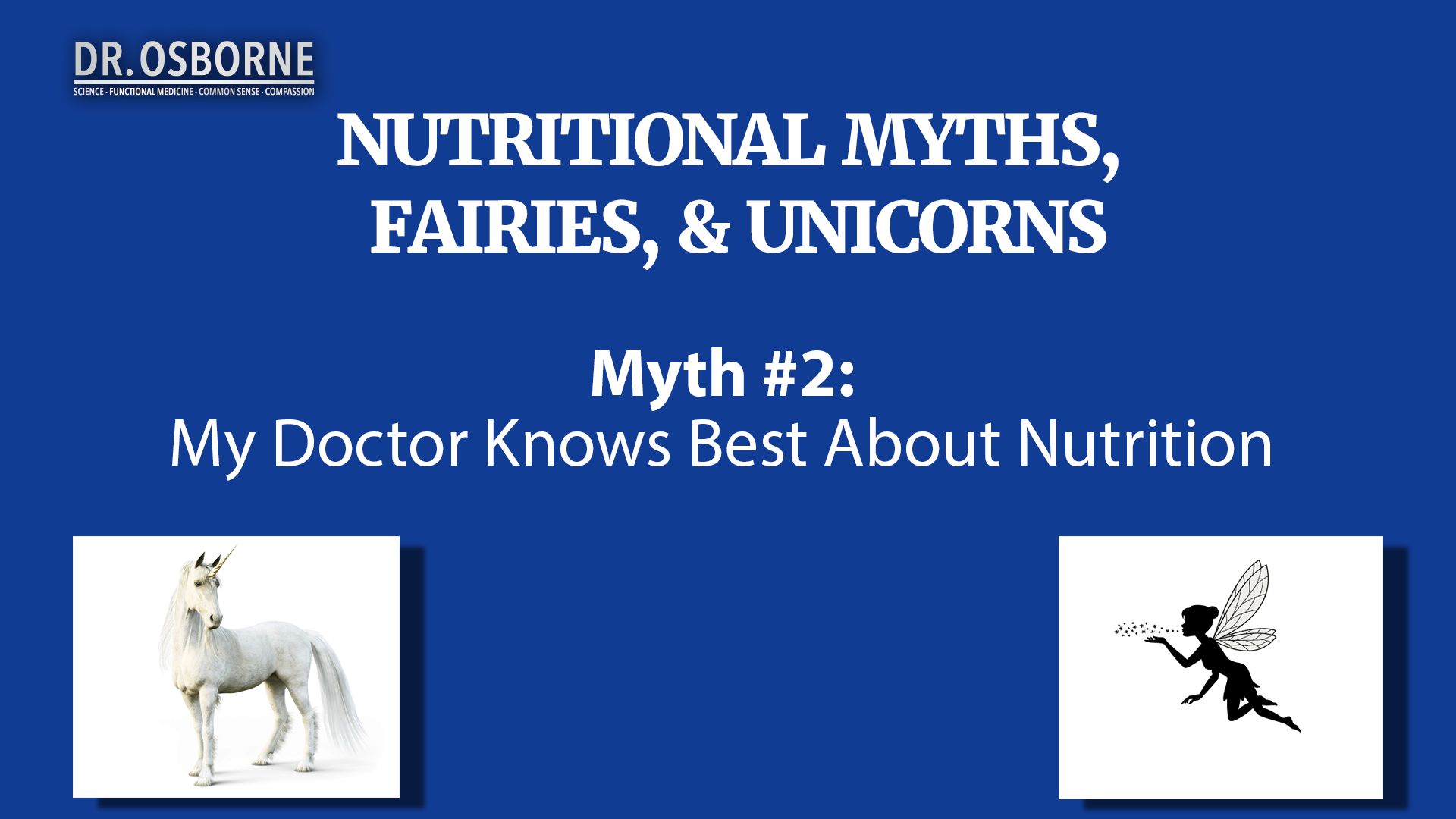 Another one of these nutritional myths is that many believe is that doctors know best, especially when it comes to nutrition. However, in regards to education, most doctors have received less than seven hours of nutrition training and are not familiar with how diet can truly impact the body.
If searching for a doctor that will be able to diagnose from a perspective of nutrition, look for one with the distinction of DACBN or Diplomat of the American Clinical Board of Nutrition. This means that he or she has completed 300 hours of nutrition training and has been certified through the governing body. While there are only about 350 doctors with this designation, hopefully, more will come to see the value of understanding the role of diet on disease and will seek further education as well.
Another one of these nutritional myths is that many believe is that doctors know best, especially when it comes to nutrition. However, in regards to education, most doctors have received less than seven hours of nutrition training and are not familiar with how diet can truly impact the body.
If searching for a doctor that will be able to diagnose from a perspective of nutrition, look for one with the distinction of DACBN or Diplomat of the American Clinical Board of Nutrition. This means that he or she has completed 300 hours of nutrition training and has been certified through the governing body. While there are only about 350 doctors with this designation, hopefully, more will come to see the value of understanding the role of diet on disease and will seek further education as well.
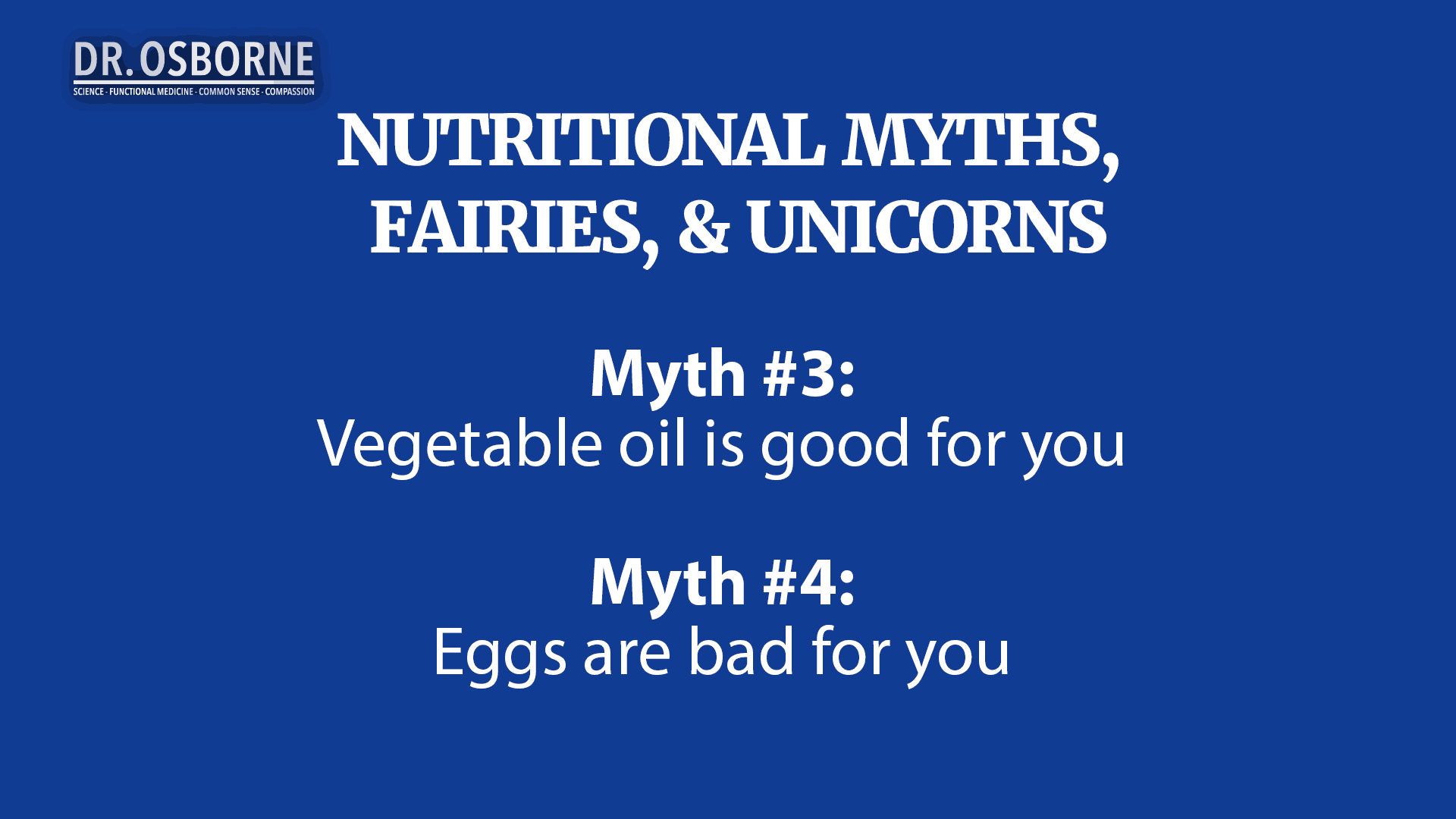
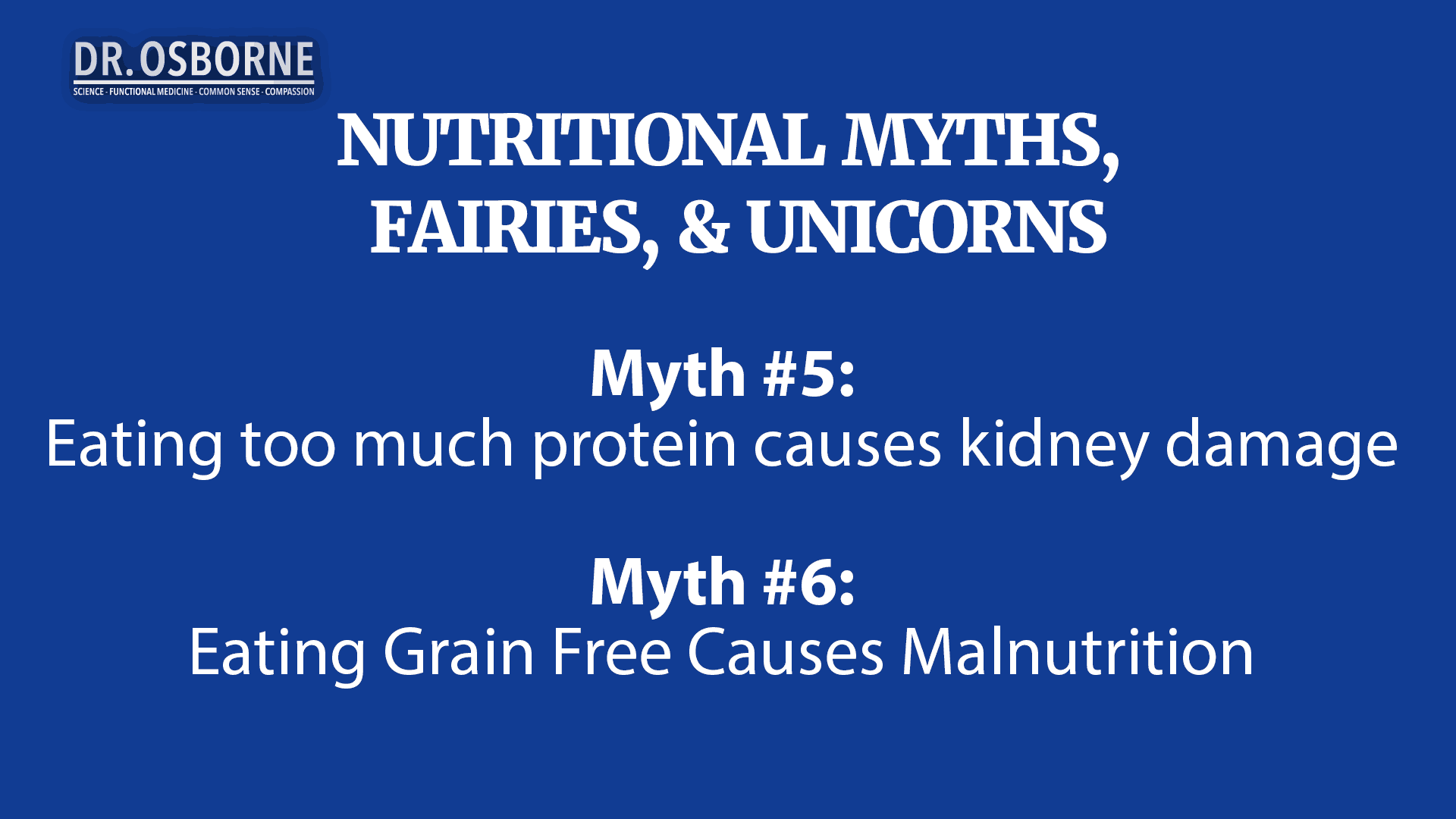
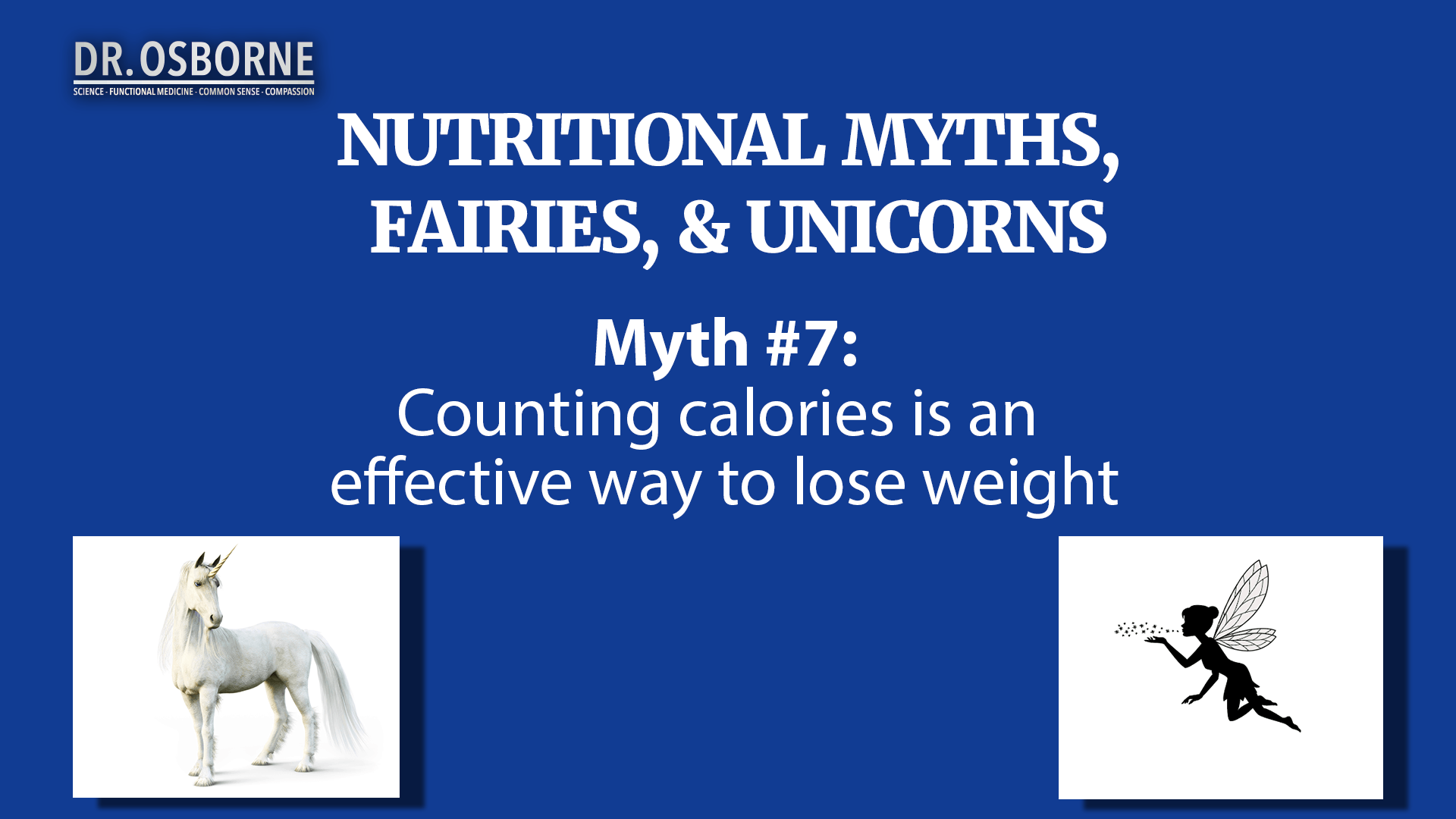 Another myth that many believe is that calories in equals calories out, and while you may be able to limit calories to lose weight, not all calories are created equal. For example, one gram of sugar has four calories, but it has no nutrients. Therefore, the body will expend stored nutrients in order to digest the sugar, necessitating a need for nutrient-dense foods.
Food impacts the body in so many ways like telling it how to heal, repair, maintain and grow. Choosing the wrong types of calories can cause inflammation, disrupt hormones, and even affect metabolism. Therefore, it is important to choose nutrient-dense foods that fit the biochemical individuality of each person. Ultimately, the quality of food should be of more importance than the number of calories being consumed.
Another myth that many believe is that calories in equals calories out, and while you may be able to limit calories to lose weight, not all calories are created equal. For example, one gram of sugar has four calories, but it has no nutrients. Therefore, the body will expend stored nutrients in order to digest the sugar, necessitating a need for nutrient-dense foods.
Food impacts the body in so many ways like telling it how to heal, repair, maintain and grow. Choosing the wrong types of calories can cause inflammation, disrupt hormones, and even affect metabolism. Therefore, it is important to choose nutrient-dense foods that fit the biochemical individuality of each person. Ultimately, the quality of food should be of more importance than the number of calories being consumed.
Stay up-to-date with the latest articles, tips, recipes and more.

*These statements have not been evaluated by the Food and Drug Administration. This product is not intended to diagnose, treat, cure or prevent any disease.
If you are pregnant, nursing, taking medication, or have a medical condition, consult your physician before using this product.
The entire contents of this website are based upon the opinions of Peter Osborne, unless otherwise noted. Individual articles are based upon the opinions of the respective author, who retains copyright as marked. The information on this website is not intended to replace a one-on-one relationship with a qualified health care professional and is not intended as medical advice. It is intended as a sharing of knowledge and information from the research and experience of Peter Osborne and his community. Peter Osborne encourages you to make your own health care decisions based upon your research and in partnership with a qualified health care professional.